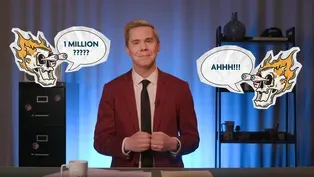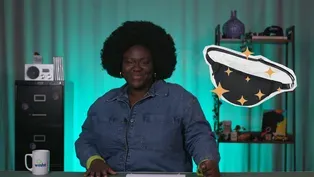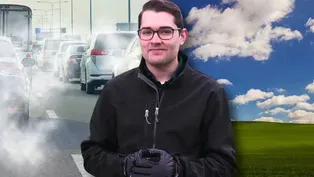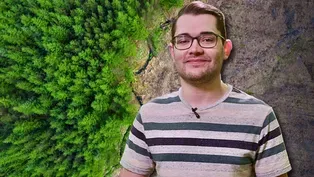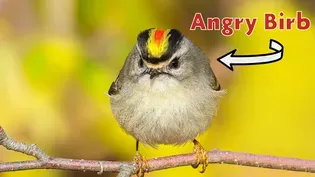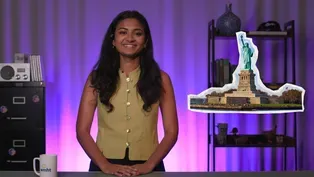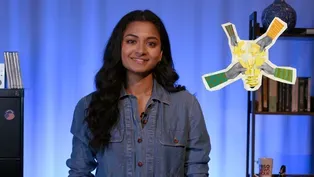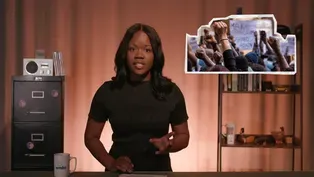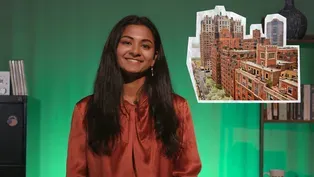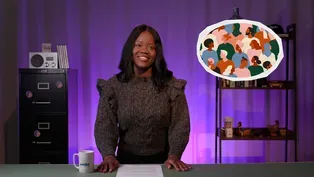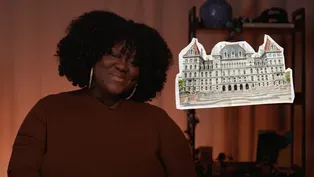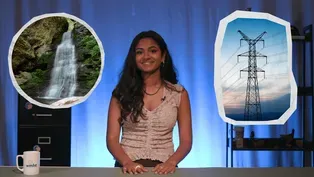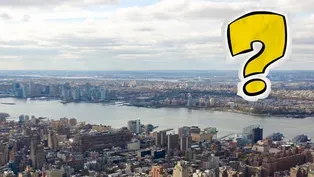
NY& Media Literacy
Clip: Special | 6m 45sVideo has Closed Captions
Learn to analyze information sources with Alexis Young.
"Some guy on the internet said it, so it must be true!" Join Alexis Young as she guides us through exploring the concept of Media Literacy and its importance in today's world. From analyzing news sources to navigating social media, learn how to separate fact from fiction and make informed decisions.
New York NOW is a local public television program presented by WMHT
Support provided by the New York State Education Department.

NY& Media Literacy
Clip: Special | 6m 45sVideo has Closed Captions
"Some guy on the internet said it, so it must be true!" Join Alexis Young as she guides us through exploring the concept of Media Literacy and its importance in today's world. From analyzing news sources to navigating social media, learn how to separate fact from fiction and make informed decisions.
How to Watch New York NOW
New York NOW is available to stream on pbs.org and the free PBS App, available on iPhone, Apple TV, Android TV, Android smartphones, Amazon Fire TV, Amazon Fire Tablet, Roku, Samsung Smart TV, and Vizio.
Providing Support for PBS.org
Learn Moreabout PBS online sponsorship(smooth upbeat music) - Welcome to New York & Media Literacy.
I'm your host, Alexis Young.
Imagine a nice family get together, everyone sitting around at the dinner table, enjoying a home cooked meal.
Then your Uncle Ricky turns to you and says, "There's children who identify as lizards and they're burning to a crisp because the schools give them human sized heat lamps."
Uncle Ricky sounds like someone who needs to improve their media literacy, but what is media literacy?
(smooth upbeat music continues) The National Association for Media Literacy Education defines it as the ability to access, analyze, evaluate, create, and act using all forms of communication.
Media literacy empowers people to be critical thinkers and makers, effective communicators, and active citizens.
All media has a message, and it's important to be able to identify what that message is.
Being media literate means being able to understand the world around you and being able to analyze things we see every day, like advertisements and how they want you to receive their message.
For example, if you see an ad for a politician eating at a small town diner, they likely want you to think, "Wow, he truly is a man of the people."
But for this episode, we're going to focus primarily on sources of information.
There's all kinds of informational media out there.
Newspaper articles, cable news, and social media posts are just a few examples.
The array of different media sources created by folks of all different backgrounds is what makes a media plurality.
This is important because it gives people access to different viewpoints, voices, and cultures.
However, the easier it is to share information, the easier it is to share misinformation, disinformation.
Malinformation is a word too, apparently.
So how can one exercise caution in today's digital landscape?
(smooth upbeat music) There are many ways and tools to help you evaluate the sources of information that you encounter.
Some think your level of media literacy is tied to your ability to C.R.A.A.P., that is your ability to use the C.R.A.A.P test.
There's more on that in the description.
But we wanted to find a research expert to help give us tips on evaluating sources, so we spoke with Kerrie Burch of WSWHE BOCES, and here's what she had to say.
- I think one of the things that's important to remember is that anybody can post anything anywhere.
If you don't know how to navigate that information, you could very easily be perpetuating information that is incorrect or is inflammatory and wrong.
These stories are created to get clicks, and that's what it's all about on those platforms.
You know, they want people to feel certain emotions, such as anger or outrage, and people really need to kind of think critically.
Ask yourself, "Is it relevant?
Are they just trying to get me to click on this because we know they're gonna get paid for that?"
You have to kind of think that way.
And, you know, is the source reputable?
What's the intent of the author in this article or in this post?
What are they trying to see happen?
Is that information accurate?
Are you finding the same information in more than one place?
- As you can see, a lot of evaluation involves asking questions.
What is the motive behind this source?
Is it current or outdated info?
Is this news or an opinion piece?
Let's say you see people sharing a screenshot of a statement reading, "Breaking: Governor Hochul is floating away in an out of control hot air balloon."
Is the author identifiable?
Can you find out more information about them?
Has the claim been verified by credible journalists?
It can be exhausting to think of all of these things in order to prevent yourself from being duped online, but once you get the hang of it, you'll find that it quickly becomes second nature, a sort of sixth sense, a BS detector.
You can also do things like curate who you follow on social media and assemble a group of quality info sources.
Just try to avoid forming your own echo chamber.
Though these evaluation techniques are individual, self-led exercises, they have a large scale impact, and we'll tell you why.
(smooth upbeat music) So we want to be properly informed because it's useful to know things that are correct and because it's embarrassing to be duped online, like Uncle Ricky.
But there's more to it than that.
We asked Kerrie Burch about the importance and impact of having a media literate society.
- When we think about the reporting of the events that occurred on January 6th, 2021, and the fact that, you know, we continue to read and see the effects of those events in the news, to me, that's a prime example of why media literacy is so important, especially to our democracy.
We have a responsibility to make sure that, you know, we aren't perpetuating lies or false news or things that are just blatantly not true.
It's not about politics, but it's about being good citizens and it's about, you know, having and using those skills to make sure that, you know, we're squashing that bad information instead of sending it out and making it bigger.
- It is not an exaggeration to say that an informed, knowledgeable society is the backbone of our democracy.
How can we make informed decisions on how to govern ourselves if we cannot separate fact from fiction?
This is why we wanted to open this series with a focus on media literacy.
We want folks to become more knowledgeable about the systems that impact our daily lives, and media literacy helps folks achieve that.
We want our viewers to learn and become active participants in trying to improve our society.
In this sense, the importance of media literacy runs through every episode of this show.
Thanks for tapping in.
I'm Alexis Young, and until next time, be well, be good, and stay informed.
We pride ourselves on being a trustworthy source of information, and all our sources will be cited in the descriptions of each episode we post.
Video has Closed Captions
Explore voting in New York State, including turnout, campaign finance, access, and more. (9m 31s)
Video has Closed Captions
Alexis Young provides an in-depth look at New York's abortion laws. (8m 13s)
Addressing Air Pollution in New York's Communities | NY& Climate
Video has Closed Captions
Join host Dana Wright as he explores air pollution's effect on New York's communities. (8m 44s)
Can We Make NY's Forests Healthier? | NY& Climate
Video has Closed Captions
Host Dana Wright looks at ways we can manage and improve the health of our forested lands. (7m 59s)
Is Climate Change Impacting NY's Birds? | NY& Climate
Video has Closed Captions
Learn why New Yorkers love birds, and why we need to help them in the face of climate change. (9m 10s)
Video has Closed Captions
Raga Justin explains the various forms of international movement to NY. (13m 12s)
Video has Closed Captions
Learn about the basics of organizing, its importance, and the potential community impact. (8m 38s)
Video has Closed Captions
Explore New York's dialogue about policing in the state. (14m 55s)
Video has Closed Captions
Discover NY tenant rights and housing laws that could shape your future. (12m 50s)
Video has Closed Captions
Join Shantel Destra as she demystifies running for local office. (9m 3s)
Video has Closed Captions
Learn about the structure and function of New York's State Government. (10m 5s)
Video has Closed Captions
Exploring New York's climate goals, landmark laws, and advocacy efforts. (10m 50s)
What Does Climate Change Mean for the Hudson River? | NY& Climate
Video has Closed Captions
Explore the Hudson River's climate and pollution challenges and efforts to improve it. (8m 42s)
Providing Support for PBS.org
Learn Moreabout PBS online sponsorshipNew York NOW is a local public television program presented by WMHT
Support provided by the New York State Education Department.
